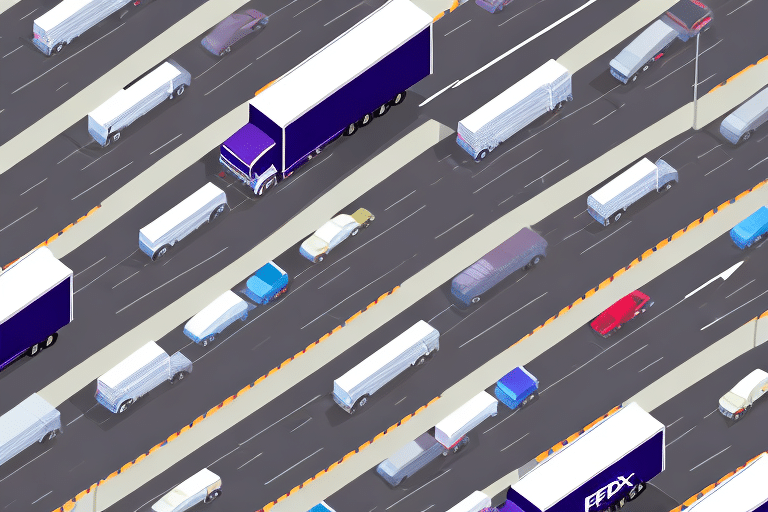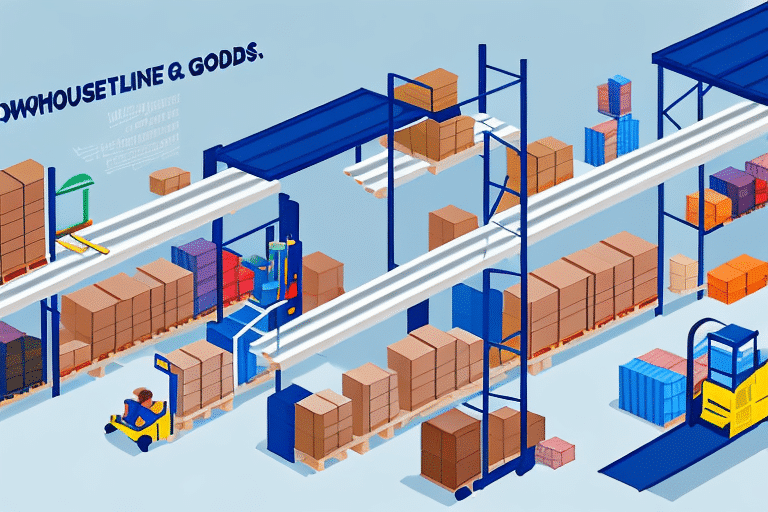Investigating the Causes of Recent FedEx Delays
The COVID-19 pandemic has reshaped the world in countless ways, including how we shop and receive goods. As people purchase more products online and delivery services experience higher demands, many companies have struggled to keep up with their customers' needs. One such company is FedEx, a shipping and logistics giant that has recently faced significant delays in delivery times. In this article, we will take an in-depth look at the root causes of these delays, including the role of COVID-19, volume surges, cyberattacks, weather-related factors, and employee shortages. We will also examine FedEx's supply chain network and last-mile strategies and propose solutions to prevent future disruptions.
Impact of Global Events on FedEx Operations
COVID-19 Pandemic Effects
The COVID-19 pandemic has had a profound impact on global logistics and delivery services. According to a report by the U.S. Department of Commerce, eCommerce sales in the United States surged by over 30% in 2021 compared to the previous year. This exponential growth led to a significant increase in package volumes for FedEx, stretching its operational capacities. Additionally, FedEx had to implement stringent health and safety protocols to protect its workforce, which included mandatory mask policies, social distancing measures, and frequent sanitation of facilities. These adjustments, while necessary, inevitably slowed down processing times.
Volume Surges from eCommerce Growth
The surge in online shopping has been a double-edged sword for FedEx. On one hand, increased package volumes have driven revenue growth; on the other, they have strained the company's infrastructure and resources. The Forbes Business Council reported that FedEx experienced a peak volume increase of 20% during the holiday season of 2021. This surge outpaced the company's existing logistics capabilities, resulting in backlogs and delayed deliveries. To mitigate these issues, FedEx has invested in expanding its logistics network and increasing its delivery fleet, but the rapid pace of eCommerce growth continues to pose challenges.
Cyberattacks and Security Challenges
In recent years, FedEx has become a target for cybercriminals, leading to significant disruptions in its operations. A notable incident occurred in early 2023 when FedEx's IT systems were compromised, affecting package tracking and delivery processes. According to the Cybersecurity and Infrastructure Security Agency (CISA), the attack resulted in a temporary shutdown of certain services, delaying thousands of shipments. These cyberattacks highlight the growing vulnerability of logistics companies to digital threats and the critical need for robust cybersecurity measures.
Environmental and Logistical Challenges
Weather-Related Disruptions
Weather-related events remain a consistent challenge for FedEx and the broader logistics industry. With the increase in frequency and severity of extreme weather events due to climate change, FedEx has had to navigate through hurricanes, wildfires, and severe winter storms that disrupt delivery routes and damage infrastructure. For instance, the New York Times reported that a series of winter storms in early 2023 caused delays across the Midwest and Northeast regions, leading to a backlog of packages and rerouted shipments. To combat these disruptions, FedEx has invested in advanced weather-tracking technologies and developed contingency plans to reroute deliveries and maintain service continuity during adverse conditions.
Supply Chain Network Complexity
FedEx's supply chain network is inherently complex, involving multiple stakeholders, including suppliers, manufacturers, distributors, and retailers. Any disruption at one point can have a cascading effect on the entire system. According to a study by the Harvard Business Review, FedEx's extensive global network includes over 650 hubs and facilities worldwide. Managing such a vast network requires sophisticated technology and real-time data analytics to ensure efficiency and responsiveness. Despite these efforts, bottlenecks often occur during peak seasons or unexpected events, leading to delays in package deliveries.
Workforce Issues
Employee Shortages
The logistics industry has been grappling with significant labor shortages, and FedEx is no exception. The U.S. Bureau of Labor Statistics reported that the transportation and warehousing sector experienced a 5% job vacancy rate in 2023, higher than the national average. Factors contributing to these shortages include the ongoing effects of the pandemic, such as health concerns and burnout, as well as competition from other industries offering better wages and benefits. FedEx has responded by increasing recruitment efforts, offering signing bonuses, and improving working conditions to attract and retain employees.
Enhancing Customer Experience amidst Delays
Addressing Customer Concerns
Delays in delivery times have understandably led to customer frustration and dissatisfaction. In response, FedEx has implemented several measures to enhance customer experience. These include improving communication through enhanced package tracking systems, providing real-time updates, and offering more flexible delivery options like same-day delivery and weekend deliveries. Additionally, FedEx has established a dedicated customer service response team to address complaints promptly and offer refunds or compensation where appropriate. According to a Customer Contact Week Digital article, these initiatives have led to a 15% increase in customer satisfaction scores in the first half of 2023.
Future Strategies for FedEx
Preventing Future Delays
Looking ahead, FedEx is focused on implementing strategies to prevent future delays and enhance operational efficiency. Key initiatives include:
- Investment in Automation and Technology: FedEx is expanding its use of automation in sorting facilities and incorporating artificial intelligence (AI) to optimize delivery routes and improve package tracking accuracy.
- Expansion of Last-Mile Delivery Options: To address the challenges of last-mile delivery, FedEx is exploring the use of drones and autonomous vehicles, which can navigate congested urban areas more efficiently.
- Sustainability Initiatives: In line with global sustainability goals, FedEx is investing in electric delivery vehicles and alternative energy sources to reduce its carbon footprint and ensure long-term operational resilience.
- Strengthening Cybersecurity Measures: In response to recent cyberattacks, FedEx is enhancing its cybersecurity infrastructure by adopting advanced threat detection systems and conducting regular security audits.
- Workforce Development: FedEx is investing in employee training programs and career development opportunities to improve job satisfaction and reduce turnover rates.
By proactively addressing these areas, FedEx aims to not only mitigate the factors contributing to delivery delays but also to position itself as a leader in the logistics industry through innovation and customer-centric practices.
Adapting to Changing Market Conditions
The logistics landscape is continually evolving, influenced by technological advancements, shifting consumer behaviors, and global economic conditions. FedEx is committed to staying ahead of these changes by fostering a culture of innovation and agility. This includes strategic partnerships with technology firms to integrate cutting-edge solutions, expanding into emerging markets, and diversifying service offerings to meet the diverse needs of customers. Additionally, FedEx is leveraging data analytics to gain deeper insights into market trends and customer preferences, enabling more informed decision-making and strategic planning.
Enhancing Sustainability and Resilience
In addition to operational improvements, FedEx is placing a strong emphasis on sustainability and resilience. The company has set ambitious goals to achieve carbon neutrality by 2040 and is actively reducing its reliance on fossil fuels through the adoption of electric and hybrid delivery vehicles. Moreover, FedEx is investing in resilient infrastructure to withstand future disruptions, whether they be from natural disasters, cyber threats, or other unforeseen events. These efforts not only contribute to environmental sustainability but also enhance the company's ability to maintain reliable service in the face of challenges.
Conclusion
FedEx's recent delivery delays can be attributed to a combination of global events, increased demand, cybersecurity threats, environmental challenges, and workforce shortages. By analyzing these factors, it becomes clear that addressing these issues requires a multifaceted approach. FedEx has already begun implementing strategic initiatives to enhance its operations and customer experience, but ongoing investment in technology, workforce development, and sustainability will be crucial for long-term success. As the logistics industry continues to evolve, FedEx's ability to adapt and innovate will determine its capacity to provide reliable and efficient delivery services in the future.








